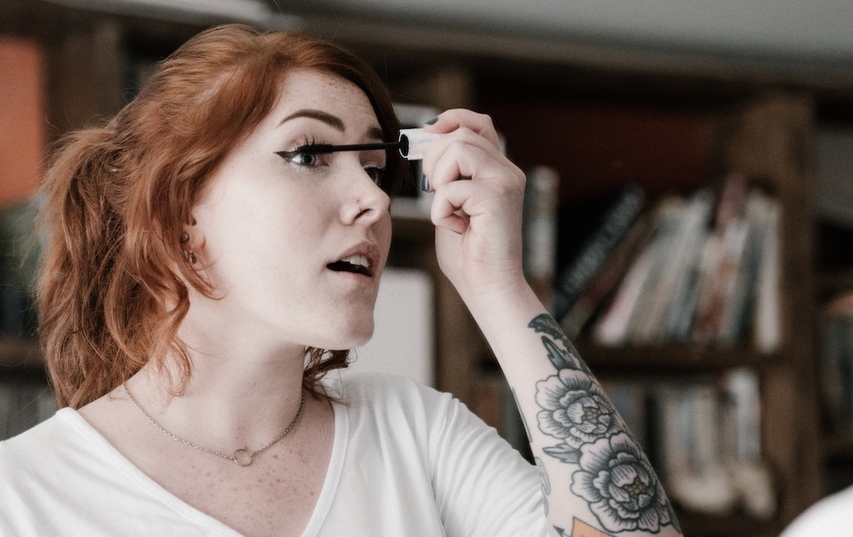Is it ok to accidentally leave makeup with acne serum on at night?

It's not uncommon to accidentally leave makeup on overnight in the hustle and bustle of our daily lives. Combined with the increasing popularity of acne serums, many wonder if sleeping with makeup and acne serum on their skin is safe. This article will explore the potential consequences, risks, and best practices associated with leaving makeup and acne serum overnight. Let's dive in and find out what's best for your skin health.
Effects of Leaving Makeup and Acne Serum Overnight:
1. Clogged Pores and Acne Breakouts:
- Sleeping with makeup and acne serum can clog your pores, leading to acne breakouts.
- Combining makeup and acne serum may trap bacteria, sebum, and other impurities, exacerbating existing acne or triggering new breakouts.
2. Skin Irritation and Sensitivity:
- Leaving makeup and acne serum on overnight can cause skin irritation, redness, and increased sensitivity.
- Certain ingredients in makeup products and acne serums may react adversely when left on for an extended period, leading to discomfort and potential allergic reactions.
3. Dryness and Dehydration:
- Makeup, particularly heavy or oil-based products, can dehydrate your skin when left on overnight.
- Acne serums often contain active ingredients that may require moisturization to balance their effects. Leaving them on without proper hydration can result in dryness and flakiness.
Risks Associated with Sleeping with Makeup and Acne Serum On:
1. Prolonged Exposure to Toxins:
- Some makeup products contain harmful chemicals that, when left on the skin for an extended period, can penetrate the dermal layers and potentially harm your health.
- Acne serums often contain active ingredients designed to be used in moderation and can cause adverse effects with prolonged exposure.
2. Reduced Skin Regeneration:
- Our skin naturally rejuvenates itself during sleep. Leaving makeup and acne serum on can impede this process, leading to slower cell turnover and compromised skin regeneration.
- A disrupted skin regeneration process may result in dullness, uneven texture, and delayed healing of existing acne or other skin concerns.
Best Practices for Optimal Skin Health:
1. Cleanse Your Face Thoroughly:
- Always cleanse your face before bed to remove all traces of makeup and dirt.
- Use a gentle cleanser that suits your skin type and follow a double cleansing routine if necessary.
- Pay special attention to areas with acne or breakouts, ensuring they are adequately cleansed.
2. Choose Lightweight Makeup Products:
- Opt for lightweight, non-comedogenic makeup products that allow your skin to breathe.
- Avoid heavy or oil-based makeup that may clog your pores and contribute to acne breakouts.
- Consider using mineral-based or water-based foundations that are less likely to cause skin irritation.
3. Remove Makeup and Serum Immediately:
- If you accidentally fall asleep with makeup and acne serum on, remove them as soon as you realize.
Use a gentle makeup remover or micellar water to wipe away the products effectively.
- Follow up with your regular skincare routine to ensure your skin is properly cleansed and moisturized.
FAQs:
Q1. Can leave makeup on overnight cause permanent damage to the skin?
- While occasional incidents of leaving makeup on overnight may not cause permanent damage, it can contribute to skin issues like clogged pores, acne breakouts, and skin sensitivity if it becomes a habit.
Q2. Are there any specific ingredients in acne serums to be cautious about?
- Acne serums often contain active ingredients like salicylic acid, benzoyl peroxide, or retinoids. These ingredients can be potent and may cause dryness, irritation, or increased sensitivity if not used according to the instructions provided.
Q3. Can I apply makeup and acne serum together?
- It is generally recommended to apply acne serum before makeup. Allow the serum to absorb fully into the skin before proceeding with your makeup routine.
Shop:
Beat acne cleanser for people with acne and acne-prone skin.
More info on makeup and acne.
To find the right acne treatments for your unique skin, take the free skin assessment by clicking here.


